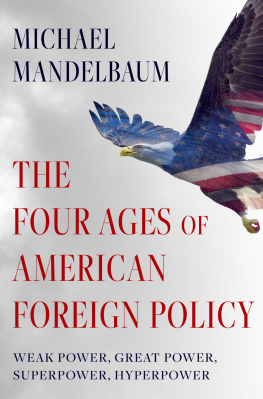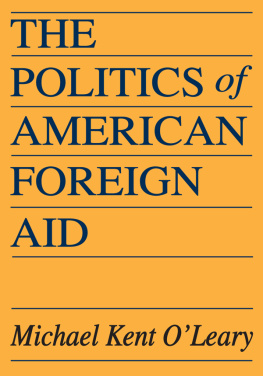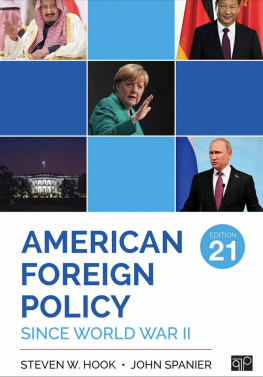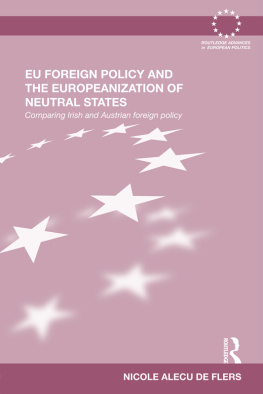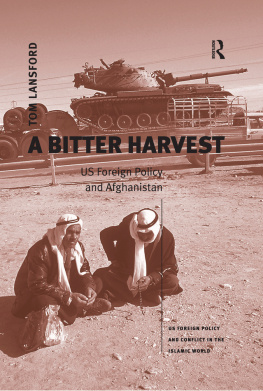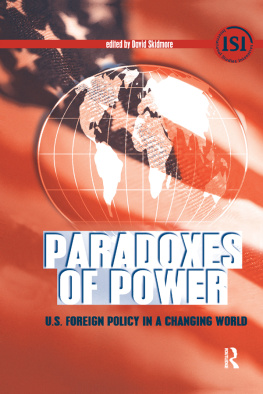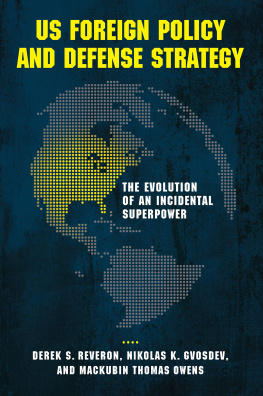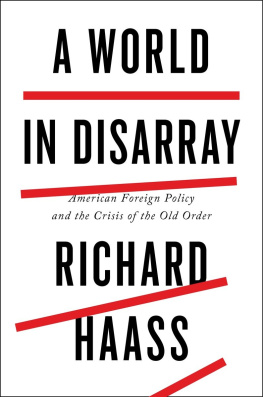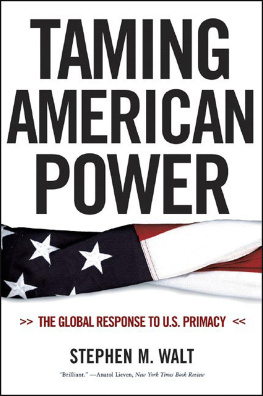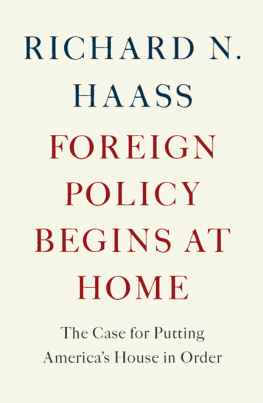The Four Ages of American Foreign Policy

Also by Michael Mandelbaum
Mission Failure: America and the World in the Post-Cold War Era (2016)
That Used to Be Us: How America Fell Behind in the World It Invented and How We Can Come Back (with Thomas L. Friedman) (2011)
The Frugal Superpower: Americas Global Leadership in a Cash-Strapped World (2010)
Democracys Good Name: The Rise and Risks of the Worlds Most Popular Form of Government (2007)
The Case for Goliath: How America Acts as the Worlds Government in the Twenty-first Century (2006)
The Meaning of Sports: Why Americans Watch Baseball, Football, and Basketball and What They See When They Do (2004)
The Ideas That Conquered the World: Peace, Democracy, and Free Markets in the Twenty-first Century (2002)
The Global Rivals (with Seweryn Bialer) (1996)
The Fate of Nations: The Search for National Security in the Nineteenth and Twentieth Centuries (1988)
Reagan and Gorbachev (with Strobe Talbott) (1987)
The Nuclear Future (1983)
The Nuclear Revolution: International Politics Before and After Hiroshima (1981)
The Nuclear Question: The United States and Nuclear Weapons, 19461976 (1979)

Oxford University Press is a department of the University of Oxford. It furthers the Universitys objective of excellence in research, scholarship, and education by publishing worldwide. Oxford is a registered trade mark of Oxford University Press in the UK and certain other countries.
Published in the United States of America by Oxford University Press
198 Madison Avenue, New York, NY 10016, United States of America.
Oxford University Press 2022
All rights reserved. No part of this publication may be reproduced, stored in a retrieval system, or transmitted, in any form or by any means, without the prior permission in writing of Oxford University Press, or as expressly permitted by law, by license, or under terms agreed with the appropriate reproduction rights organization. Inquiries concerning reproduction outside the scope of the above should be sent to the Rights Department, Oxford University Press, at the address above.
You must not circulate this work in any other form and you must impose this same condition on any acquirer.
Library of Congress Cataloging-in-Publication Data
Names: Mandelbaum, Michael, author.
Title: The four ages of American foreign policy : weak power, great power,
superpower, hyperpower / [Michael Mandelbaum].
Description: New York, NY : Oxford University Press, [2022] |
Includes index.
Identifiers: LCCN 2022003360 (print) | LCCN 2022003361 (ebook) |
ISBN 9780197621790 (hardback) | ISBN 9780197621813 (epub) |
ISBN 9780197621820
Subjects: LCSH: United StatesForeign relations.
Classification: LCC E183.7 .M287 2022 (print) | LCC E183.7 (ebook) |
DDC 327.73dc23/eng/20220217
LC record available at https://lccn.loc.gov/2022003360
LC ebook record available at https://lccn.loc.gov/2022003361
DOI: 10.1093/oso/9780197621790.001.0001
To My Esteemed Classmates
Daniel B. Badger Jr.
Michael G. Berger
H. Neil Berkson
Merrill T. Boyce
James N. Gardner (19462021)
Andrew T. Hingson
Peter C. Kostant
James L. Kugel
Richard B. Stoner Jr.
Robert A. Stults
James R. Vivian
Steven R. Weisman
Jack M. Weiss III
Mark L. Wolf
Yale College, 1968;
and to my esteemed wife, Anne Mandelbaum, Yale MA, 1968
Contents


There are three reasons for the existence of The Four Ages of American Foreign Policy. First, it offers a fresh perspective on the history it covers. The discipline of history is, as the Dutch historian Pieter Geyl aptly put it, an argument without end. The book that follows is intended to contribute to that ongoing argument. Second, this book takes the story further than other volumesbecause of when they were writtenwere able to do: up to the year 2015.
Third, and most important, The Four Ages of American Foreign Policy offers readers a new framework for understanding the history of the foreign policy of the United States. It divides that history into four distinct periodsfour agesdefined by the consistent increase in the power the country has had at its disposal in its relations with others. In addition, it records three striking continuities in the 250 years it covers, in the goals and the instruments of American foreign policy, and in the way that policy was adopted and implemented.
Although every work of history identifies both continuities and changes in the period with which it deals, it is in the selection of continuities and changes in the history of American foreign policy that it specifies as the most significant ones that The Four Ages of American Foreign Policy differs from previous accounts.
The present work portrays the United States, in its ascent, first as a weak power, then as a great power, next as a superpower, and, ultimately, as the worlds sole hyperpower. The three distinctly American features of that foreign policy are its ideological goals, the use of economic instruments in pursuit of them, and a democratic process for formulating and implementing decisions about it. These are the distinguishing features of the foreign policy in the quarter millennium between 1765 and 2015.

i am grateful to Nicholas X. Rizopoulos and Paul M. Kennedy for helpful conversations about World War I and World War II, respectively.
I owe thanks to Starr Lee and to the staff of the Mason Library of The Johns Hopkins University School of Advanced International Studies for research assistance and to Michael Frimpong for technical assistance.
I am indebted to the two anonymous reviewers for Oxford University Press, who provided useful comments on the manuscript.
I profited greatly from reading the volumes in the Oxford History of the United States series, originally edited by C. Vann Woodward and now by David M. Kennedy. They are, collectively, a splendid monument to historical scholarship.
It has been a pleasure to work again with David McBride of Oxford University Press.
My greatest debt, as always, is to my wife, Anne Mandelbaum, for her peerless editing, her keen wit, her wise counsel, the joy of her companionship, and the constancy of her love.
the theme that unites the foreign policy of the United States of America during the 250 years between 1765 and 2015 may be simply stated: expansion and ascent. Over the course of those two and one-half centuries the American republic rose in the ranks of independent countries from an obscure, unimportant collection of small European settlements scattered along the eastern seaboard of North America to a continent-spanning colossus with a global presence that towered over all other sovereign states. It achieved this status through the expansion of its power; of its wealth, which is the foundation of power; and of its influence, which is the shadow that power casts.

